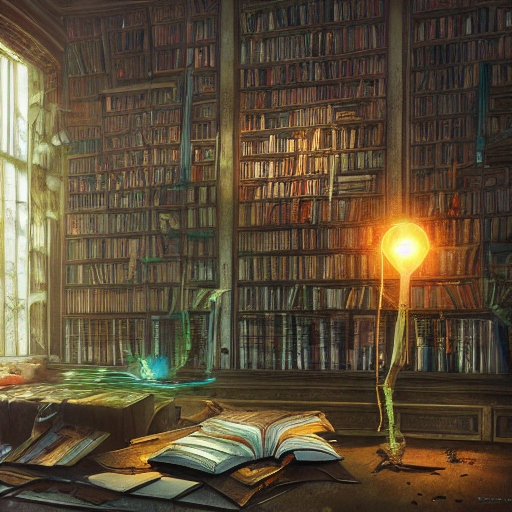Unlocking the Secrets of Real Scholarly Magic: Two Mind-Blowing Books That Transform Your Perception of Spells, Spirits, and Ancient Powers!
When it comes to magic books, especially about hoodoo, one usually is provided a selection of funky little pamphlets, often full of errors, aimed at practitioners or aspiring practitioners (These probably include my own books like Death and Destruction: How to Cast Magic Spells for Vengeance, Harm, &c. -- one thing about the little pamphlets is they don't sell well enough to make pro editors a viable option.)
But there are two other books I want to tell you about. These are not like those silly magic booklets. They are real scholarly works. They don't force you to believe everything, but they do help you understand things better. Even if you do magic, you can read these books and think of the information as true facts, not just beliefs. These are not corny little conjure booklets: these are actual scholarly works. Skepticism is presumed but not shoved down your throat, and it's easy for practitioners to read the contents as fact instead of records of belief. An advantage of this sort of book is it actually has a tendency to explain the processes behind these behaviors in magical practice which we just take for granted.
**EROS AND MAGIC IN THE RENAISSANCE**
by Ioan P. Couliano
One day, I went to a bookstore called Borders with a coupon that gave me a 40% discount. I hadn't read anything about the Middle Ages in a while, so I went to the medieval history section. Right in front of my eyes, I saw a book titled "Eros and Magic in the Renaissance." I flipped through the pages and randomly landed on one that I couldn't pull my eyes from. I instantly felt that this book was something I needed to have.
The title might make you think it's only about love spells, and it does talk a lot about them, but it's really about magic in general. It explains why practitioners do certain things (Why do you have to "purify" yourself before doing magic? The answer has to do with something important inside us called "pneuma," which is like a special energy needed for magic. It's kind of like what they talk about in Eastern cultures, like chi and prana.) The book also talks about phantasms, which are important in magic. They're like mental images you create, and they're a big part of what makes magic work. The book explains all of this in a simple way, so you don't have to guess or assume. It tells you why things work the way they do. There are also a few spells in the book, like a spell to communicate with an angel named Orfiel, spells to make your pneuma stronger, and some love magic.
The book mostly focuses on magic from Europe during the Renaissance (a time when people were interested in proper and fancy things, so they wrote about them), but a lot of the ideas in the book are universal. This means they apply to magic from different traditions all over the world.
**THE ORIGIN OF CONSCIOUSNESS IN THE BREAKDOWN OF THE BICAMERAL MIND**
by Julian Jaynes
This book had been sitting around my family's house for a long time, even before I was born. No one had ever finished the first chapter because it was so hard to read. It became like a joke in my family. But a few years ago, my mom decided she was going to read it no matter how long it took. She started telling me about what she was learning from the book. She said that if you get past the first 100 pages, the book gets much more interesting. The beginning is slow because the author wants to make sure everyone understands what he means when he talks about "consciousness." In this book, consciousness is a bit like being aware of yourself.
This book doesn't focus only on magic. It's more about how our minds work and how they can do things like magic or communicate with gods or spirits. The author thinks like a scientist, so he doesn't say that gods, spirits, and magic are real in the way we usually think. Instead, he explains how our brains can create these things. I found this very helpful in developing my own magical abilities. Many magical things happen when our minds are not fully aware, and this book explains how our awareness evolved from two different parts of our brain working together. In the past, these parts worked separately, which made people feel like external forces were controlling them or talking to them.
Even though the book is scientific, I don't think it goes against the idea of gods, spirits, and magic being real. It just helps us understand how they could work in our minds. And because the author explains so much about how our minds work, you can figure out how to get better at doing magic and other things. The book also talks about why people in ancient times or who live in rural places often seem to have stronger magical abilities. It even changes the way you think about the Trojan War.
